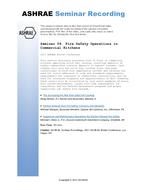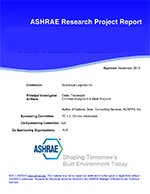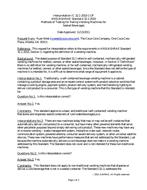Summarizes the results of five recent infiltration studies on electrically heated, single-family homes in the Pacific Northwest. In each of these studies, infiltration was measured by time-averaged perfluorocarbon tracer tests (PFT) and estimated with blower-door depressurisation tests combined with the Sherman-Grimsrud (LBL) infiltration model. Results are given for a total of 472 homes. The PFT-measured air change rates ranged from 0.38 ach for the baseline study to 0.27 ach for newer energy-efficient homes with ventilation systems. Depending on the study, 50% to 85% of the homes failed to meet current standards for minimum ventilation rates. Homes with forced-air heating systems had infiltration air change rates that averaged 17% to 36% greater, depending on the study, than homes with baseboard or wall heaters. The homes in three of the studies had various mechanical ventilation systems. The additional ventilation provided by these systems was small, except in homes with continuously operating systems. Discusses the results of a detailed study on one home in which the model predictions and PFT measurements were compared with real-time multizone tracer measurements.
KEYWORDS: measuring, ventilation, air infiltration, all electric, housing, tracers, testing, calculating, depressurization, air change rate, low energy housing, warm air heating, skirting heating, electric heaters, mechanical ventilation, continuous operation, comparing
Citation: Symposium, ASHRAE Trans. 1991, vol.97, part 2
Product Details
- Published:
- 1991
- File Size:
- 1 file , 1.2 MB
- Product Code(s):
- D-18333


